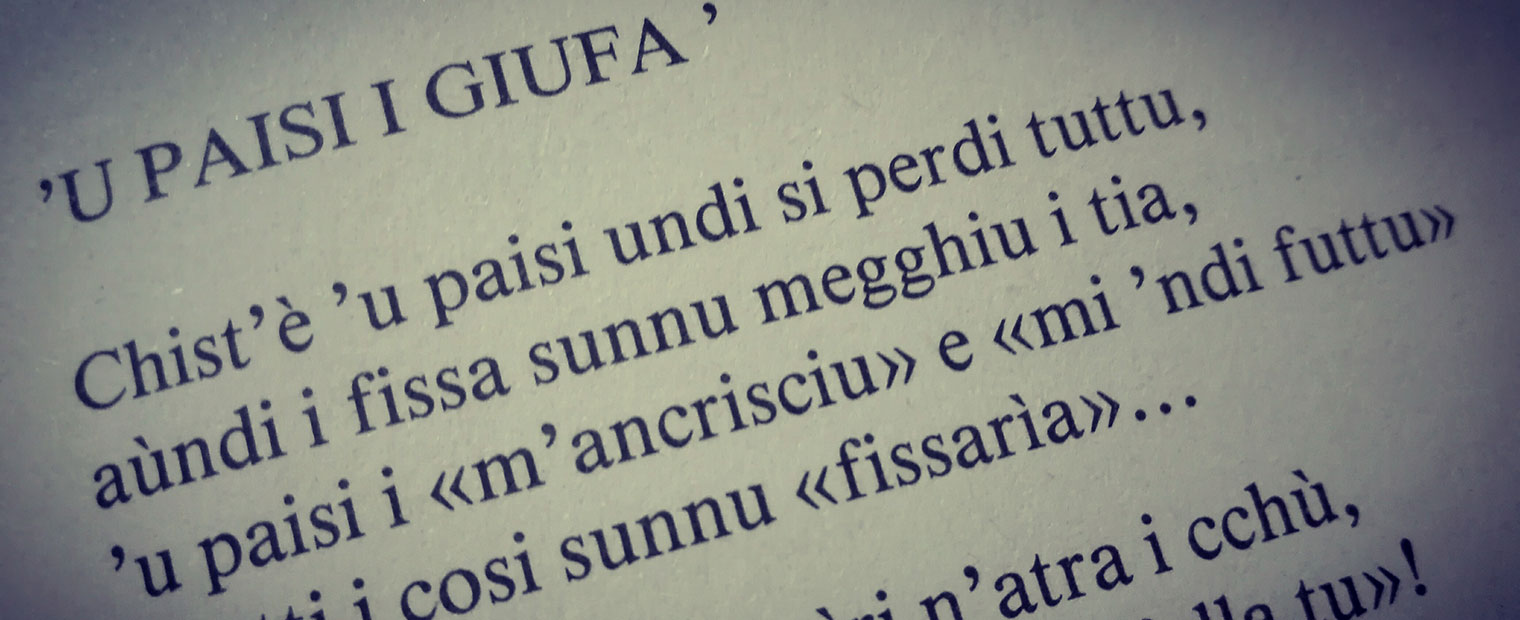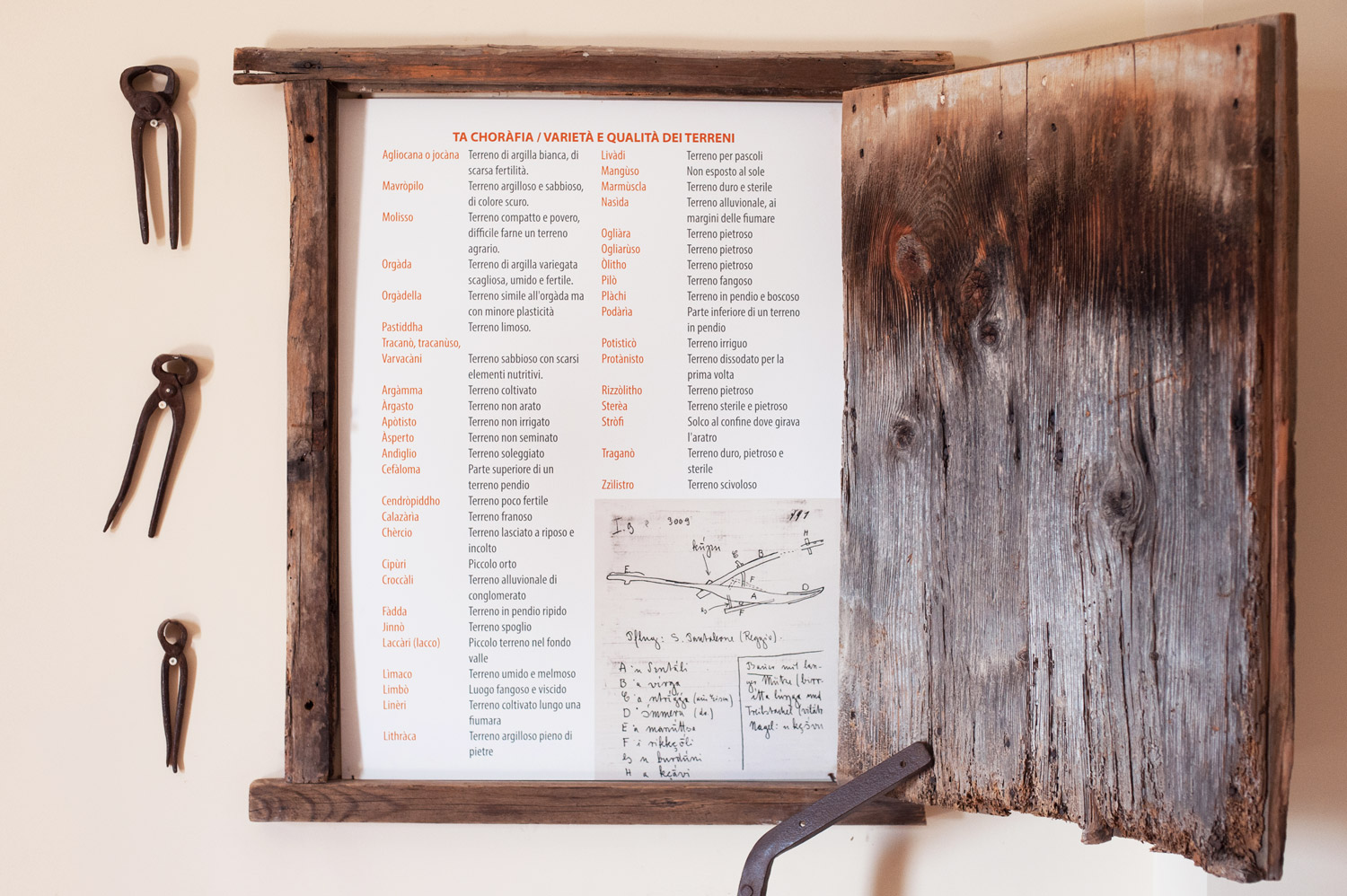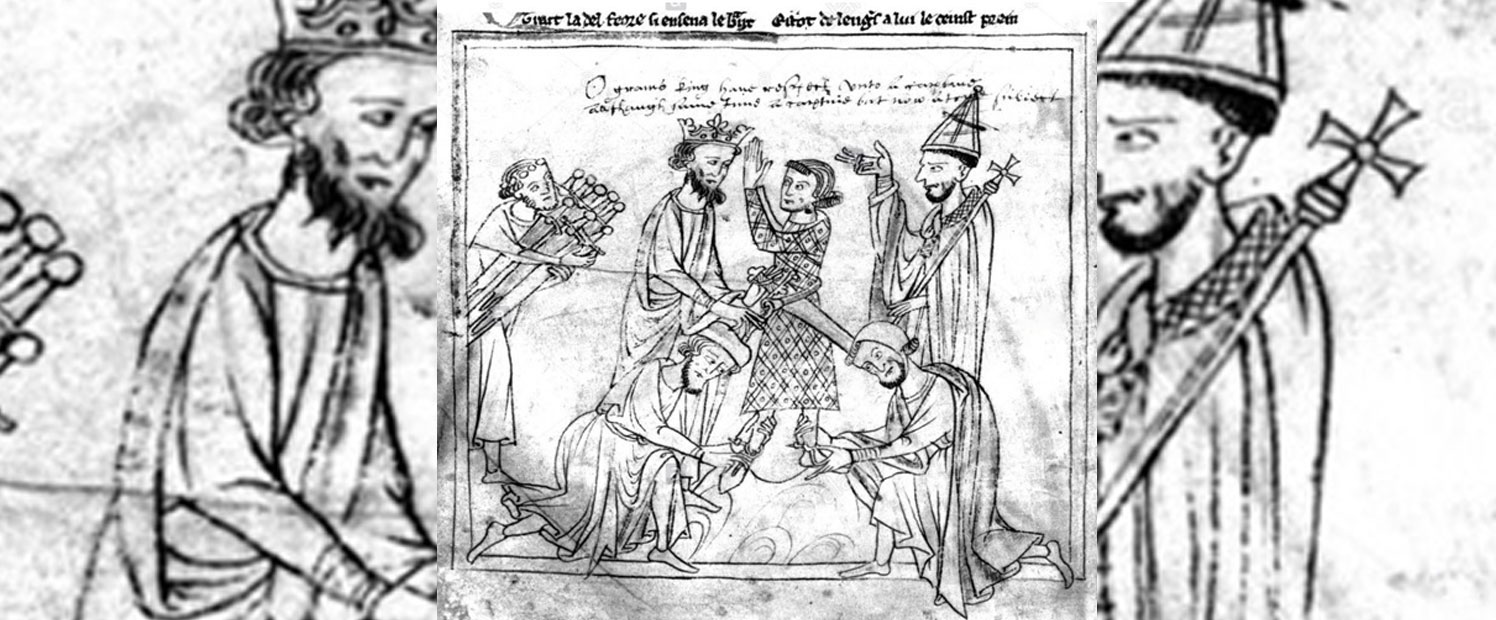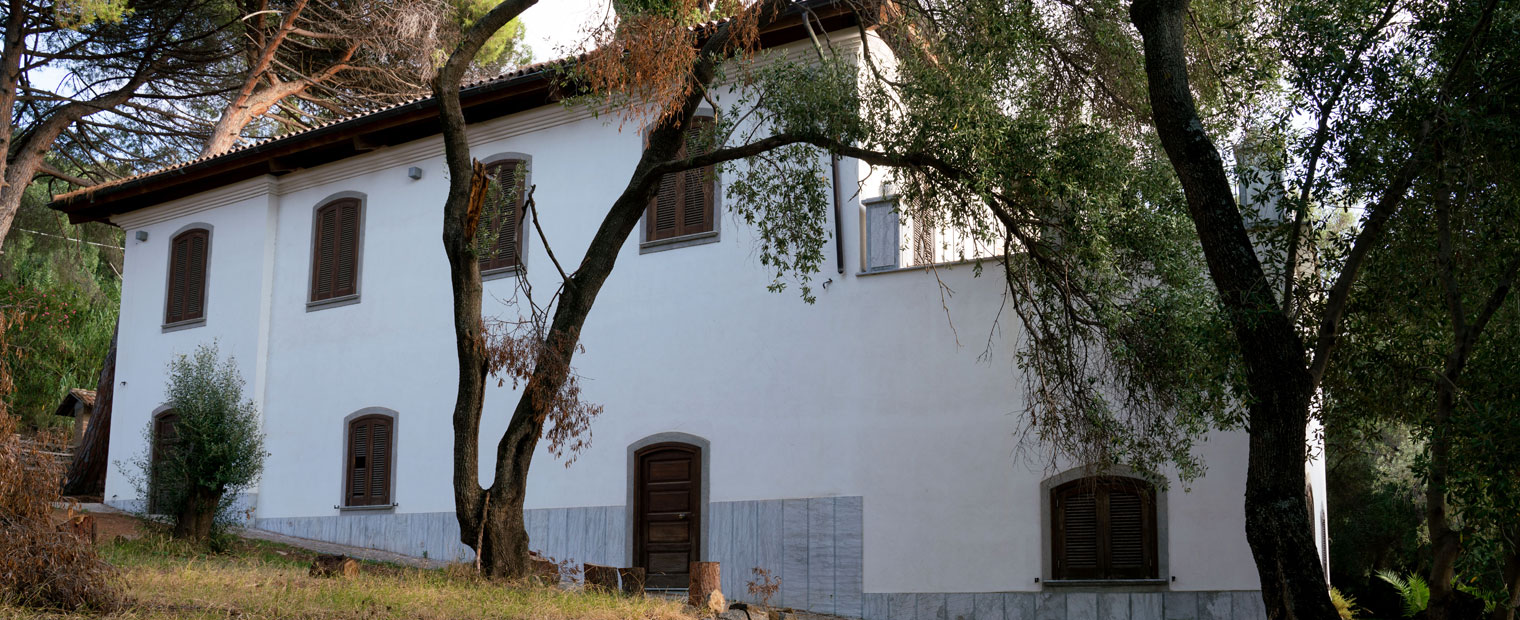Difficult to place in the Italian linguistic panorama, the Reggio dialect, called “Riggitanu”, blends elements of various forms into the language that is traditionally spoken.
In fact, the Reggio area was established over the centuries through the fusion of various spoken languages in the so-called Calabria Citra, starting with the Greek spoken by the first settlers. This was later strengthened by the secular presence in the early Middle Ages of the Byzantines, continuing with the Latin, and attaining many linguistic heritages due to continuous dominations by empires such as the Spanish and French.
From Greek to Latin, including Grecanico and Sicilian, the ancient dialect of the city of Reggio therefore represents a real Greek koine of the Strait. This saw a marked similarity between the Reggio and Sicilian dialect rather than with the dialects of the so-called two other “Calabrias” (Catanzaro and Cosenza).
The various loan words have given rise to a language capable of absorbing and transforming all its historical influences, even those of the countless foreign dominations that it suffered.
Even if the French forced the Latinisation of the official language of the Roman Catholic Church, the official language of Reggio was Greek until the year 1000, a date that goes back several centuries for the area around Reggio (consider that in the 17th century Greek was still spoken in several villages of Piana di Gioia Tauro; until the 18th century in the neighbouring municipalities of Reggio, such as Cardeto; and in modern times, it is still spoken in the current Greek area).

The characteristics of the dialect
The modern studies of contemporary linguistics, edited by Giacomo Devoto and Gabriella Giacomelli, The Dialects of the Regions of Italy, a monumental work released in 1972, writes about the language spoken in Reggio that is: “… a Sicilian offshoot that came from Italy and extended through to the Strait of Messina in Southern Calabria, more or less in connection with the province of Reggio”.
Indeed, the dialect of Reggio Calabria, especially the one spoken within the city and with due differences in the Calabrian area of the Strait of Messina that goes from Scilla to the Greek area of Bova, clearly distinguished itself from the other Calabrian dialects spoken, showing great affinity with the Sicilian and specifically the dialect of Messina, which is on the opposite side of the Strait.
There are two reasons for this that are the basis of modern linguistics studies.
The first is the law of dialectal continuity, which is that the closer two dialectal areas are, the greater their mix and mutual loan words. Messina is closer to Reggio than it is to Cosenza or Catanzaro. The second is of a more historical nature; given that Reggio has always been a seaside town in a mostly mountainous region, consider that a large part of the province of Reggio is geographically dominated by Aspromonte.
This has favoured the orientation of the ancient Reghion towards Sicily since ancient times, especially towards Messina. The historical documents highlight the millennial and uninterrupted relationships between the two sides of the Strait (especially when, with the Norman conquest, the hegemonic role of the Strait passed from Reggio to the Peloritan city) even in times of political division between Calabria and Sicily, for example when Sicily was in Arab, and Calabria in Byzantine hands, or when the island was under Aragonese domination and Reggio under Angevin power.
From oral to written language
The appearance of the first literary texts that refer to a vulgar language close to Reggio Calabria is in the late Middle Ages.
The main cause of this delay should be noted. At that time, the province of Reggio Calabria did not experience the phenomenon where vicissitudes of poets and prose writers in the vernacular were linked by the Municipalities, as much as it did the proliferation of scholars and clerics who were capable of writing and transcribing Latin works.
Latin is known as the language of scholars, the courts, and ecclesiastical and political power; therefore, the vulgar Reggio-Calabrian language had long been excluded from the panorama of writing.
As the philosopher and historian Francesco Fiorentino recalled, even as late as the 16th and 17th centuries:“all of the Southern Italian writers were worth more as Latinists than as Italian writers. It seems that there were still Latin people with the Greek graft, rather than new people speaking in a modern language”.
A Latin lexicon and a Greek way of thinking
The plurality of the roots of the Reggio language is also reflected in a lexicon which, although prevalently from Latin, records numerous surviving Greek words, maintaining the morphology of the Greek koine (widespread at the time of Alexander the Great and subsequently through the Gospels).
Some syntactic-morphological characteristics such as the way the subjunctive is formed (for example, “bisogna che io vada – I have to go”, which becomes “echo na pao” in Greek, is expressed as “aju mi vaiu” in the Reggio dialect, or in Greek “devo andare – I have to go” with the use of the participle “mi”, which replaces the Greek “na”). There is also the absence of the infinity (in the original form of the dialect preserved mainly in the small villages around Reggio), the use of the imperfect instead of the conditional, and the absence of the past tense always replaced by the remote past. These are all characteristics of the language that coincide with the Greek koine (and with modern Greek), an evident sign that the Greek language persisted in Reggio until recent times.
Dante and the language of the Strait
Dante himself, who in On Eloquence in the Vernacular (1. I) when making quick mention of the various dialects and the language of the “Calvaresi”, makes no explicit mention of a dialect or vernacular from Reggio, even if it is this precise language that Ulysses speaks in Hell in the famous verses:
"You were not made to live like brutes,
but instead to follow virtue and knowledge".



